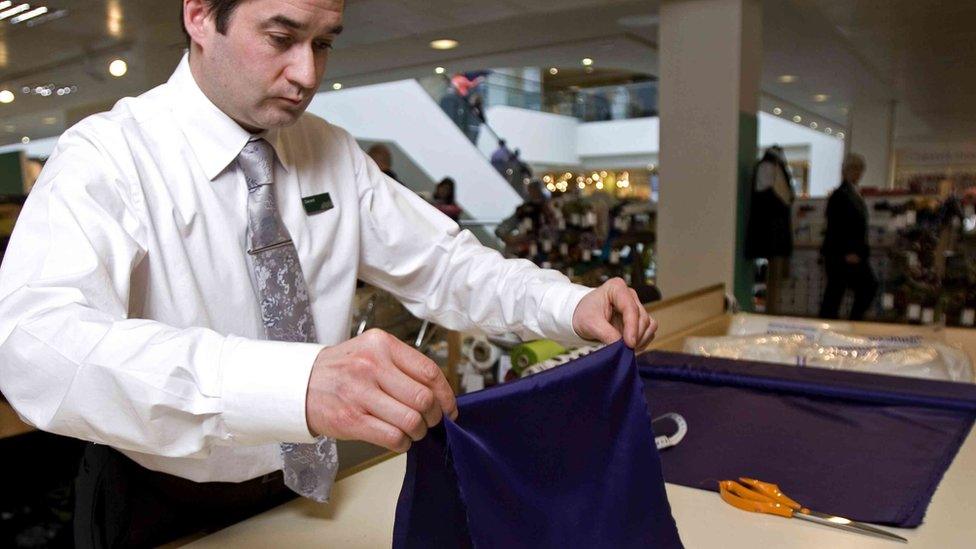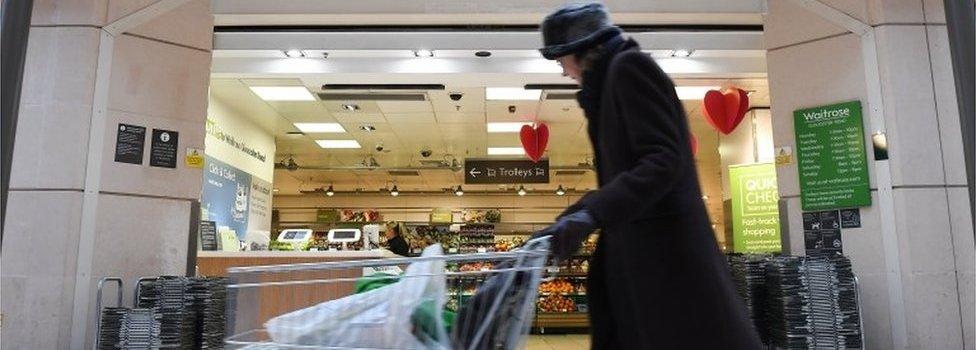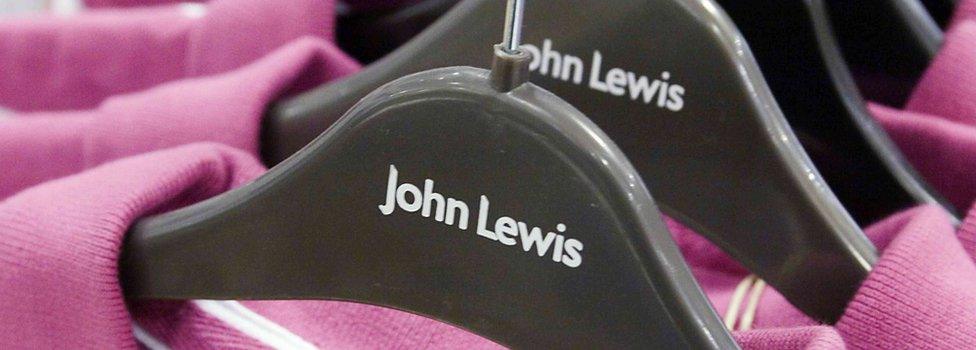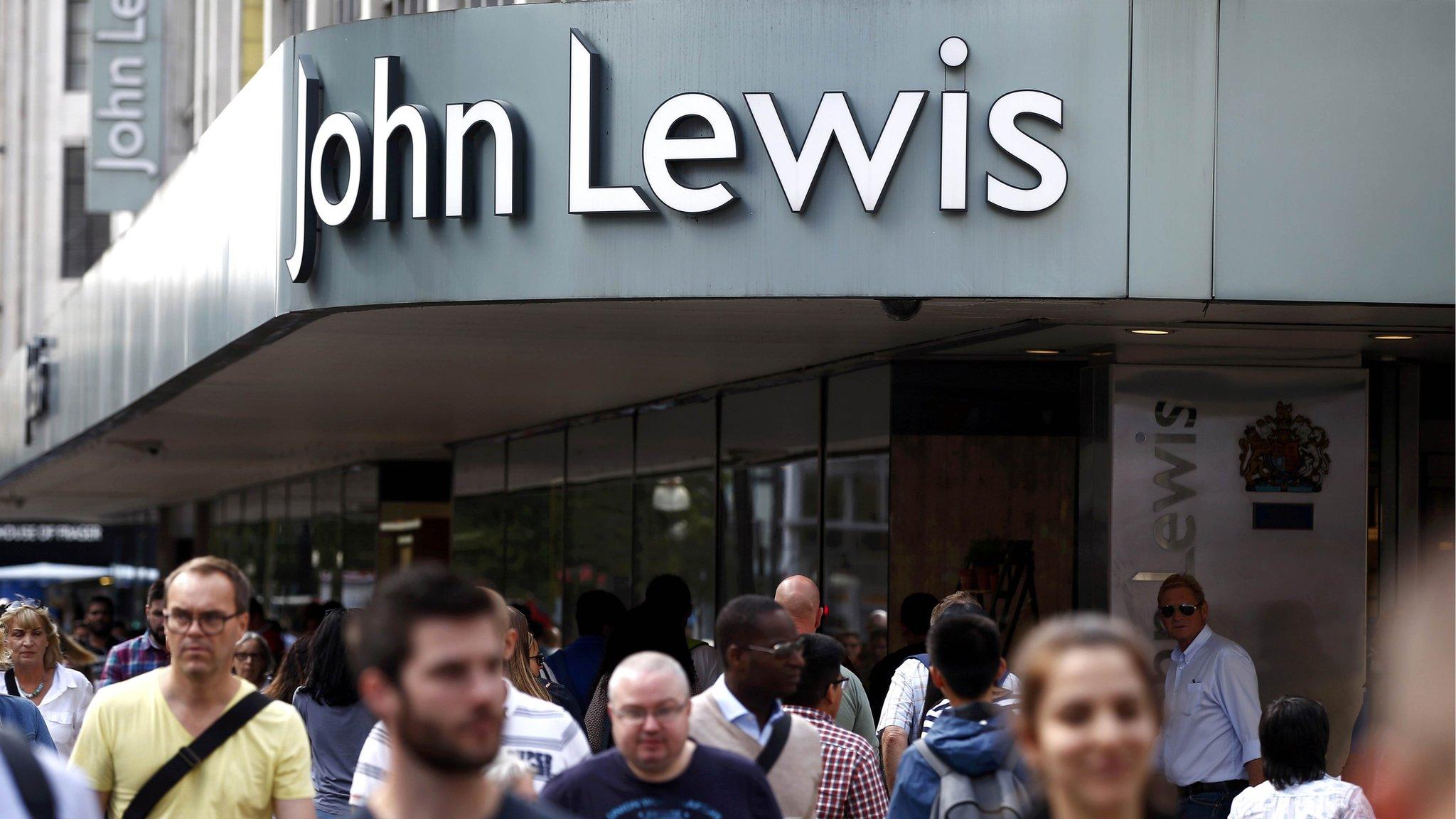John Lewis staff bonus cut again
- Published
- comments

Bonuses for 86,700 staff at John Lewis and Waitrose have been cut for the fourth year in a row.
Employees will get a 6% bonus, more than three weeks' wages, down from 10% last year and the lowest since 1954, when it was 4%.
The partnership said it held back more of its profits due to an "increasingly uncertain market this year".
The group, which runs department stores and supermarkets, also warned of price pressures and intense competition.
John Lewis, which owns Waitrose supermarket, is owned by a trust on behalf of employees, frequently referred to as partners. These influence the business through branch forums and elect some 80-plus representatives to the Partnership Council.
It is the largest employee-owned business in the UK.
New products boost
Despite the cut in staff bonuses, John Lewis reported a rise in sales and profits last year.
Profit, before the partnership bonus, tax and exceptional items, rose 21.2% to £370.4m. Overall sales rose 3.2%, with both John Lewis and Waitrose increasing their market share.

How does the John Lewis Partnership work?

The John Lewis group owns Waitrose supermarkets as well as department stores
John Lewis has been a partnership since it started 150 years ago
Waitrose joined in 1937
Consists of an elected council, a board and a chairman
First bonus paid in 1919
First cash bonus in 1970
No bonus paid in First World War, Second World War and early fifties
Company says it allows them to have a longer term outlook as it doesn't have to answer to City shareholders

Waitrose exports
The John Lewis department stores, which say they are "never knowingly undersold" on price, saw sales growth in all major areas.
New products such as the Dyson Supersonic hairdryer helped the electronics division, while fashion sales were helped by stocking the brands Finery and Hush, which were previously online only.
The Waitrose supermarkets saw like-for-like sales - which strip out the impact of store openings and closures - fall 0.2%, although the company said trading improved in the second half of the year. It is changing its focus to investing in existing stores rather than opening new ones.
Waitrose is also looking to export more. A deal with China's Alibaba Group allows it to sell products in the country for the first time, and an agreement with the online retailer British Corner Shop, which sells in more than 100 countries, allows it to export elsewhere.

Analysis: Emma Simpson, business reporter

A lot of workers would be delighted with a 6% bonus, any bonus in fact but it's worth remembering that partners in John Lewis have been used to double digit payouts, including a stonking 18% in 2011.
But the company is slashing this annual reward from a position of strength. John Lewis continues to outperform many of its rivals.
Today's move shows this institution isn't immune from the challenges retail is facing, from grappling with the impact of the fall in the pound, to shoppers increasingly buying things online.

However, John Lewis acknowledged that trading would continue to be tough as it battles the same issues affecting other High Street retailers.
"In the year ahead, trading pressures will continue as a result of the wider changes taking place in retail," the partnership said.
"The two major influences are pricing, where the rate of change in selling prices is likely to be significantly slower than the rate of change in input costs as a result of weakness in the sterling exchange rate, and the continued shift from shops to online."
- Published15 September 2016
